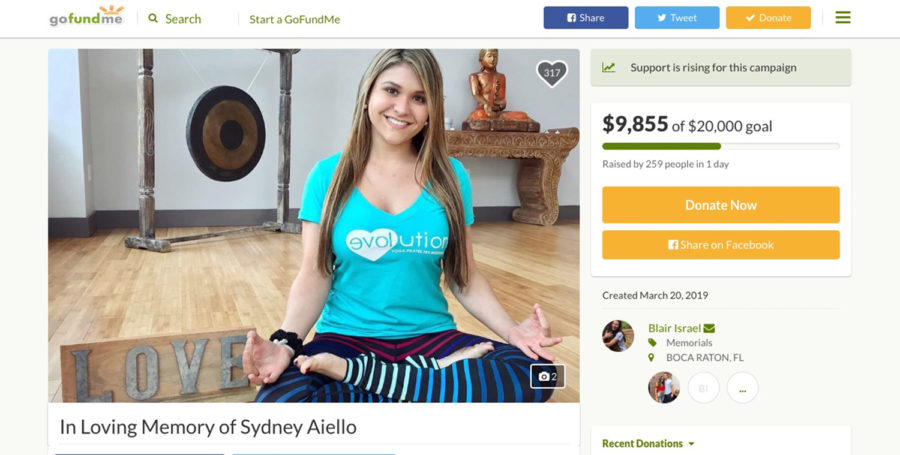Editorial: Shooting survivors need more mental health resources
Sydney Aiello, a 19-year-old Parkland shooting survivor, killed herself Sunday.
March 25, 2019
As more cities across the United States experience gun violence through mass shootings, there are more survivors and loved ones of victims who need access to resources to help them cope with what they have experienced.
Three people who had survived a mass shooting or whose loved one was killed in a shooting allegedly committed suicide in the past week. These people’s pain didn’t stop in the aftermath of the shootings, and they — as well as all others in their terrible position — deserved access to mental health resources to help them process and grieve what they lost.
Two survivors of the mass shooting last year at Marjory Stoneman Douglas High School in Parkland, Florida, apparently committed suicide this past week because of the tragedy they experienced. Sydney Aiello, a 19-year-old student who graduated from Stoneman Douglas last year, took her own life on March 17. She had been diagnosed with post-traumatic stress disorder and suffered survivor’s guilt. A second student at Stoneman Douglas, 16 years old, died on Saturday of an apparent suicide, and his death is still under investigation.
Broward County Public Schools, the district that includes Stoneman Douglas, supplied counselors and therapy dogs to students immediately following the shooting. But for a lot of students and teachers, these short-term solutions were not enough and they had to seek help elsewhere.
“We have these documentary film people coming and saying, ‘Oh, the community is coming together,’ and kind of putting a beautiful bow on it,” Parkland Mayor Hunschofsky said. “And there’s a lot of good going on in our community. But we cannot ignore what else is happening.”
And Parkland isn’t the only community facing this problem.
Police in Newtown, Connecticut, found 49-year-old Jeremy Richman dead of apparent suicide Monday. Newtown was the site of a mass shooting in 2012, in which the gunman shot and killed 20 children between the ages of 6 and 7, as well as six adults at Sandy Hook Elementary School. Richman was the father of one of the children killed.
Richman, a neuroscientist, and his wife, Jennifer Hensel, started the Avielle Foundation in honor of their daughter to support research in neuroscience and behavior science, as well as to advocate for community engagement and education on these topics. The foundation gave a statement Monday to the Hartford Courant about the importance of reaching out to others at the same time one takes care of their own mental health.
“Tragically, his death speaks to how insidious and formidable a challenge brain health can be and how critical it is for all of us to seek help for ourselves, our loved ones and anyone who we suspect may be in need.”
Officials have been concerned it would take years for the community to process and feel the full impact of the shooting. Former Connecticut Gov. Dannel P. Malloy fears Richman’s apparent suicide and those of two Parkland shooting survivors would lead others to also commit suicide.
“We know it’s a challenge,” Malloy said. “These are long-term issues for people to deal with. The more there are, the more acceptable they seem to be, which of course they’re not. Now is the time for outreach.”
Outreach includes community programs for recognizing and talking to those who might be at risk for suicide, better access to mental health-care providers, lowering the stigma surrounding depression and mental illness and learning to reach out to others about their mental health.
Those affected by Newtown and Parkland are still working through their grief. Their communities need to invest in the time and resources to do so.
If you or someone you know are struggling with depression, anxiety, suicidal thoughts or any form of mental illness:
Call the Counseling Center at 412-648-7930, 8:30 a.m. to 5 p.m. or 1-888-796-8226 any time, for any reason.
If you need immediate help or counseling, call the Pitt Police at 412-624-2121.
Off-campus options:
Western Psychiatric Institute and Clinic: 412-624-1000
Re:Solve Crisis Network: 1-888-796-8226








